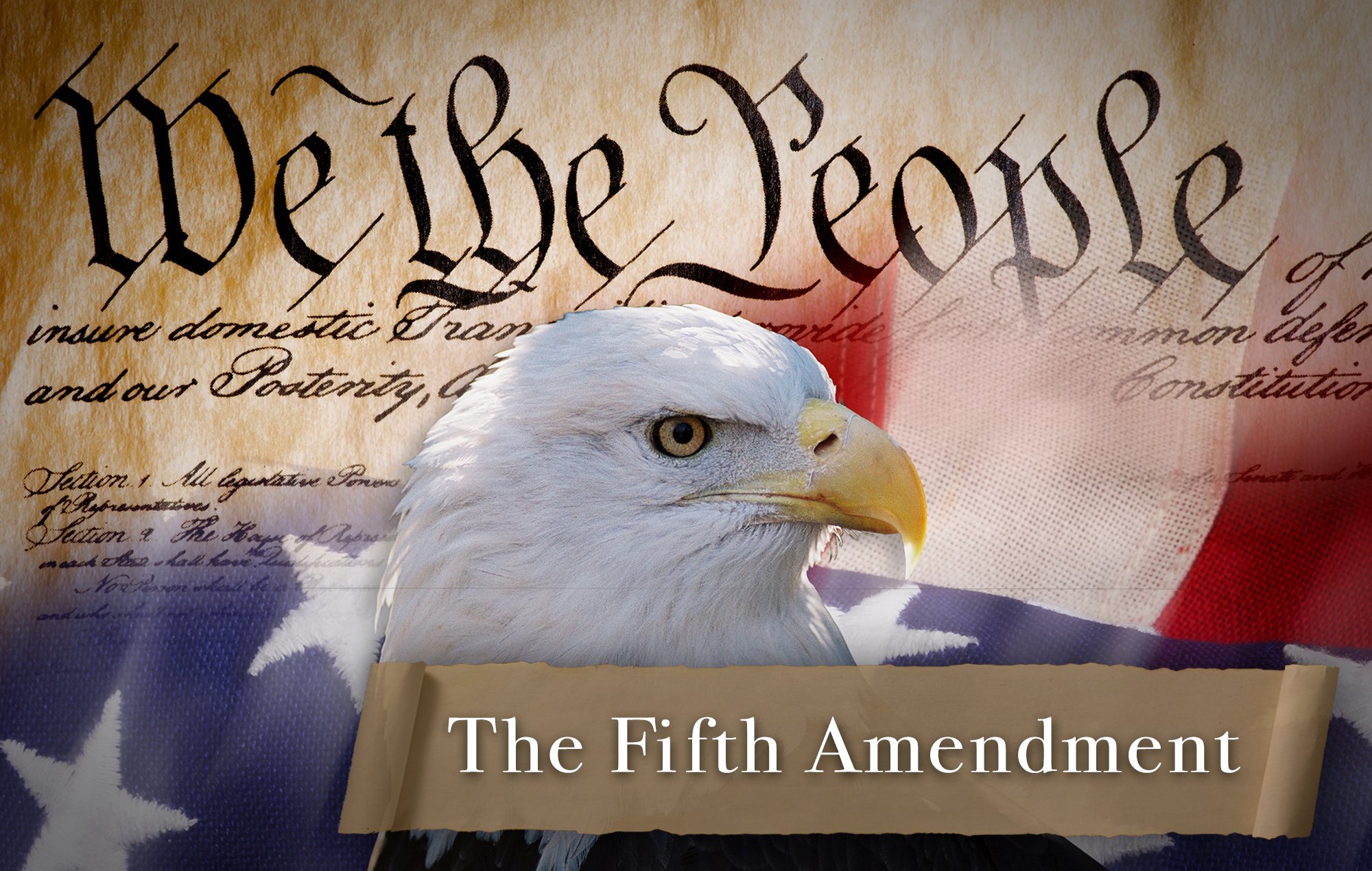

The Fifth Amendment bundles several significant rights and protections, among them: the right against self-incrimination, the protection against being tried twice for the same offense, the right to just compensation if the government seizes your property, and the rights of due process under the law.
“Pleading the Fifth” is a phrase you’ve almost certainly heard used on TV police shows and during broadcasts of famous criminal trials. It refers to that clause in the middle of the text, fashioned to protect citizens from being forced to incriminate themselves.
No person shall be held to answer for a capital, or otherwise infamous crime, unless on a presentment or indictment of a Grand Jury, except in cases arising in the land or naval forces, or in the Militia, when in actual service in time of War or public danger; nor shall any person be subject for the same offence to be twice put in jeopardy of life or limb; nor shall be compelled in any criminal case to be a witness against himself, nor be deprived of life, liberty, or property, without due process of law; nor shall private property be taken for public use, without just compensation.
What you may not know is that this right stems from a long history of confessions elicited by torture. Indeed, torture was an accepted practice in 16th and 17th century England. But even in current-day America, methods not as brutal as direct physical injury, but in the same way cruel, inhumane and coercive, have been used to obtain confessions.
For instance, subjecting an accused to severe psychological duress or coercion – like threatening family members with prosecution or placing an accused in pre-trial solitary confinement – could result in authorities obtaining false confessions. Of note, is the 1966 landmark and most renowned Fifth Amendment case regarding our right against self-incrimination, Miranda v Arizona 348 U.S. 436.Then Chief Justice Earl Warren, writing for the majority, proclaimed: “. . . the prosecution may not use statements, whether exculpatory or inculpatory, stemming from custodial interrogation of the defendant unless it demonstrates the use of procedural safeguards effective to secure the privilege against self-incrimination.”
The Fifth Amendment has been one of the chief protections against vicious abuses of power against our persons, loved ones, and property. Indeed, unbridled power often leads to corruption, and we must remain ever vigilant against abuse of authority.







